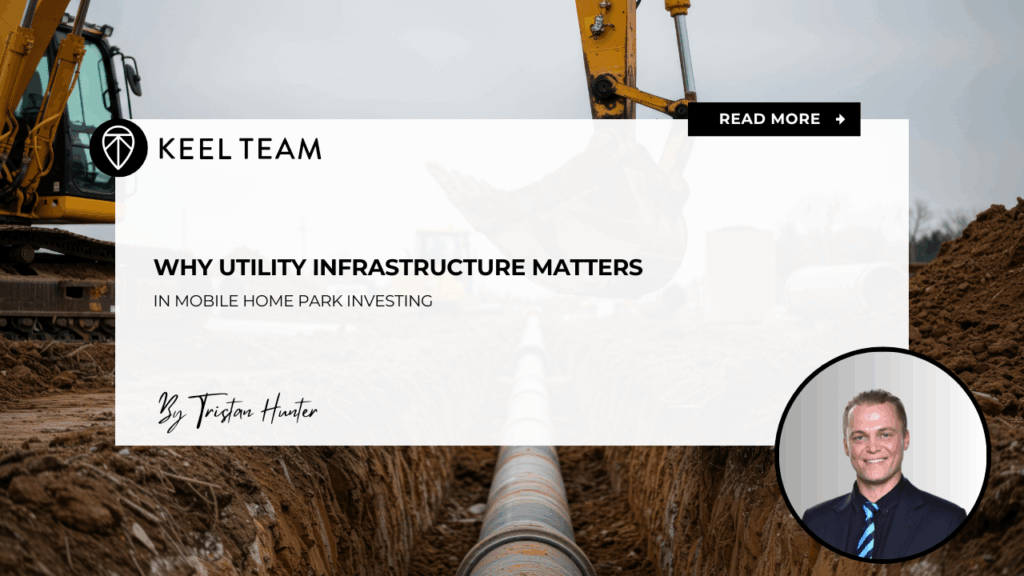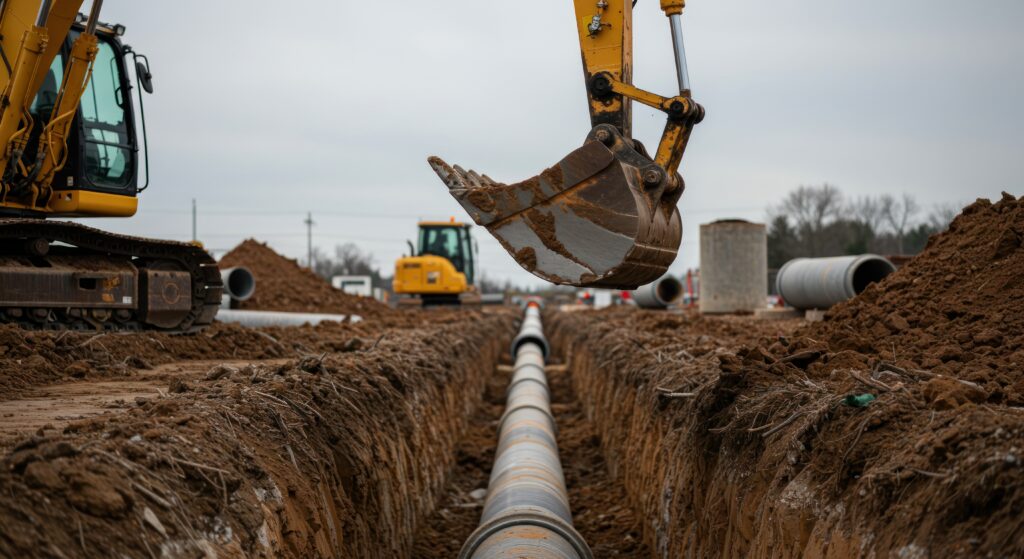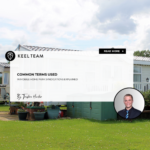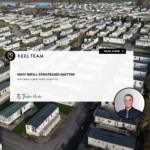Why Utility Infrastructure Matters in Mobile Home Park Investing
-
 Tristan Hunter - Investor Relations
Tristan Hunter - Investor Relations

Utility infrastructure often plays a larger role in mobile home park investing than many new investors expect. While factors like occupancy, market rent, and management efficiency shape long-term performance, the underlying utilities influence stability, risk, and operational costs in meaningful ways. In fact, as Andrew Keel has noted in many industry discussions, the utility infrastructure within a mobile home park is typically the most expensive land improvement on the property. Because of this, understanding how utilities are configured becomes an essential part of proper due diligence.
Utility systems vary widely across mobile home communities in the United States. Some assets rely on fully public systems, while others use private utilities that require more operator involvement. This variation creates different categories of risk, ongoing maintenance requirements, and potential capital expenditures. When investors understand these components clearly, they can gain a more realistic view of both current operations and future performance.
The Role of Utility Infrastructure in Mobile Home Park Investing
Utility systems affect three main areas that investors often weigh when evaluating a mobile home park:
- Operational reliability
- Expense predictability
- Long-term capital planning
Although no outcome is guaranteed, properties with dependable infrastructure often demonstrate more consistent operations. Meanwhile, assets with aging or unsupported infrastructure may face variable expenses or surprise repairs.
Utility infrastructure typically includes:
- Water distribution lines
- Sewer or septic systems
- Electrical distribution
- Natural gas distribution or individual propane
- Stormwater management
- Road surfaces connected to underground utilities
Because these systems are buried underground or built into the core layout of the community, they can be costly to repair or replace. This is why utility analysis often serves as a foundational part of due diligence rather than a secondary step.
Download our FREE eBook on the Top 20 things to know BEFORE investing in mobile home parks!
Understanding Water Systems in Mobile Home Park Investing
Water systems are one of the most crucial elements in a mobile home park. They directly affect habitability, compliance, and ongoing operational expenses.
Public Water Systems
Many mobile home communities use public water. This arrangement usually involves:
- A municipal connection
- A master meter or individual resident meters
- Responsibility for pipes from the meter to the homes
Public water tends to offer stable quality and consistent pressure. It also reduces direct operational responsibilities because the municipality handles treatment and distribution up to the point of connection. While public systems do not eliminate risk entirely, they often create fewer unknowns during due diligence.
Private Water Systems
Private systems introduce more operational responsibility for the owner. These systems may include:
- Private wells
- Filtration or chlorination systems
- Pressure tanks
- On-site treatment components
Private systems can serve mobile home communities reliably, but they may carry greater long-term costs. Maintenance schedules, regulatory compliance, system age, and water source quality all influence risk. Many operators budget conservatively for repairs and testing because private systems require hands-on oversight.
Because well pumps and treatment equipment eventually wear out, investors often include potential replacement costs in their underwriting. A thorough well inspection, water test, and review of regulatory logs is a standard step in due diligence for a mobile home park with private water.
Evaluating Sewer and Wastewater Infrastructure
Wastewater management is often one of the highest-risk components in a mobile home park. Sewer infrastructure usually falls into one of two categories: public sewer or private sewer.
Public Sewer Systems
Public sewer usually offers the most predictable long-term expense profile. The municipality manages treatment, compliance, and system maintenance outside the property boundary. The owner maintains the collection lines within the mobile home park, which may still require periodic repair or replacement. However, investors typically see fewer unknowns when the system connects to municipal sewer.
Private Sewer Systems
Private sewer introduces more complexity. These systems include:
- Septic tanks
- Drain fields
- Aerobic treatment units
- Lagoon systems
- Package treatment plants
Private systems may function well for decades, but they require more detailed evaluation. Soil conditions, system age, capacity limits, and repair histories influence performance. Additionally, larger repair events—such as drain field replacement or treatment plant refurbishment—can result in meaningful expenditures.
During due diligence, operators usually complete:
- Camera scoping of sewer lines
- Professional evaluation of septic or treatment systems
- Review of regulatory compliance reports
- Analysis of flow levels and usage patterns
Because wastewater failures can create emergency situations, many operators prioritize these components early in underwriting.
The Importance of Electrical Infrastructure
Electrical system design varies significantly across mobile home communities. The primary considerations often include:
- Whether the utility company or the owner maintains the main distribution system
- The age and condition of pedestals
- Load capacity relative to modern home requirements
- The presence of overhead vs. underground wiring
Older electrical infrastructure may not meet the load requirements of newer manufactured homes. In some cases, upgrades become necessary when infill activity occurs. Transformer capacity, panel condition, and grounding systems can all influence safety and reliability. Although many communities operate for years without major electrical issues, the cost of upgrades can be material. This is why inspection by a licensed electrician during due diligence is common.
Gas Systems: Natural Gas vs. Propane
Gas distribution within a mobile home park typically follows one of two models.
Natural Gas
If available, natural gas usually enters the community through a public utility line. Responsibility for infrastructure may vary depending on local utility rules. Some utility providers maintain the entire distribution system, while others require the property to manage internal piping.
Propane
Communities without natural gas often use propane systems. These setups may include:
- Individual propane tanks at each home
- A large community tank with distribution lines
Propane systems can operate reliably, but they require clear documentation on tank ownership, safety checks, and refill responsibilities. Because fuel price fluctuates, operating expenses may vary over time.
Stormwater, Drainage, and Ground Conditions
Stormwater management is often overlooked even though it influences roadway condition, soil stability, and resident satisfaction. Poor drainage can lead to erosion, standing water, or road deterioration, which may require capital projects to correct. Culverts, swales, detention basins, and underground drainage pipes all play a role in long-term performance.
During underwriting, many operators review:
- Past flooding issues
- Grading and soil conditions
- The age and function of drainage components
Because these improvements are tied to the physical layout of the mobile home park, major drainage projects can become costly.

How Utility Infrastructure Impacts Operational Risk
Utility systems shape both day-to-day operations and long-term capital planning. Some of the common impacts include:
Expense Volatility
Private systems may introduce variable repair costs. Pumps, lines, and treatment components eventually require service. Public systems, although generally more predictable, can still involve underground line repairs.
Regulatory Compliance
Private water and sewer systems may require testing, reporting, and inspections. Staying compliant helps maintain operational stability and resident safety.
Long-Term Replacement Needs
Underground lines and equipment have finite lifespans. Vintage galvanized water lines, clay sewer pipes, and aging distribution components may require phased replacement.
Resident Satisfaction and Retention
Reliable utilities help create consistent living conditions. While no system guarantees perfect performance, stable infrastructure often reduces disruptions and service issues.
Best Practices for Evaluating Utility Infrastructure in Due Diligence
Investors evaluating a mobile home park often follow structured steps to understand utility condition and risk.
1. Review All Available Documentation
This can include:
- Past repair invoices
- Municipal billing history
- Engineering reports
- Regulatory filings and water quality tests
- Septic or treatment system schematics
2. Conduct On-Site Physical Inspections
Professionals may inspect:
- Water lines
- Sewer lines (often with a camera)
- Wells or treatment systems
- Electrical pedestals and panels
- Drainage components
3. Interview On-Site Staff or Local Operators
Operators with historical knowledge can provide insight into recurring issues or previously completed repairs.
4. Budget Conservatively
Because utilities represent the most expensive land improvements in a mobile home park, many investors take a conservative approach to capital planning. Even when a system appears stable, long-term maintenance is still expected.
5. Understand Regulatory Obligations
Private utilities may require annual testing, certifications, or monitoring. Confirming these requirements early helps create operational clarity.
Conclusion
Utility infrastructure matters in mobile home park investing because it influences reliability, expenses, compliance, and future capital planning. While no investment outcome is guaranteed, understanding these systems during due diligence can help investors form a realistic view of risk. As Andrew Keel often emphasizes, utility infrastructure within a mobile home park usually represents the most expensive land improvement on the property, which is why clear evaluation is a practical step for any investor exploring this asset class.
Are you looking for MORE information? Book a 1-on-1 consultation with Andrew Keel to discuss:
- A mobile home park deal review
- Due diligence questions
- How to raise capital from investors
- Mistakes to avoid, and more!
Disclaimer:
The information provided is for informational purposes only and is not investment advice or a guarantee of any kind. We do not guarantee profitability. Make investment decisions based on your research and consult registered financial and legal professionals. We are not registered financial or legal professionals and do not provide personalized investment recommendations.

Tristan Hunter - Investor Relations
View The Previous or Next Post
Subscribe Below 👇





